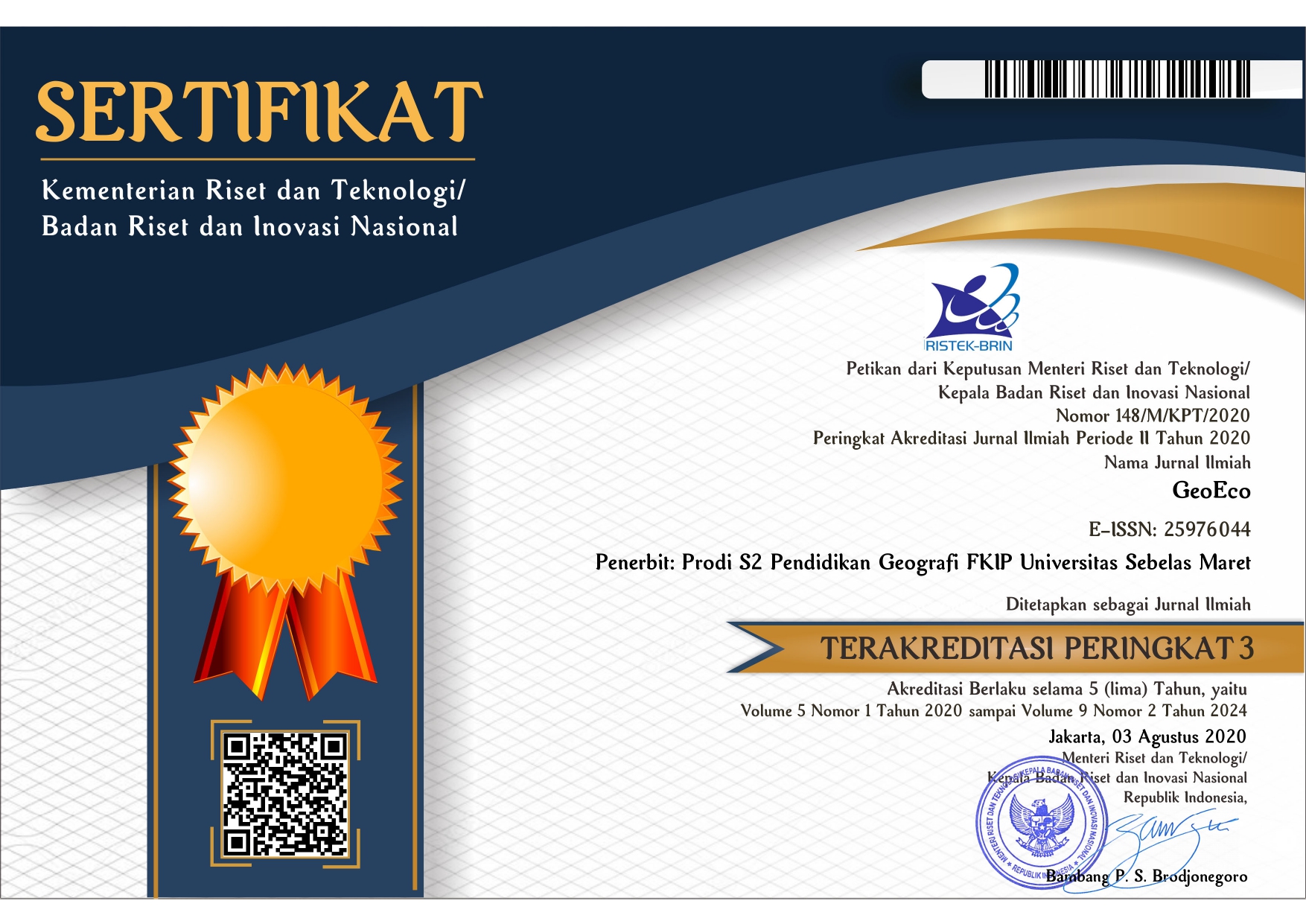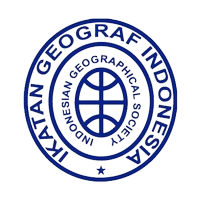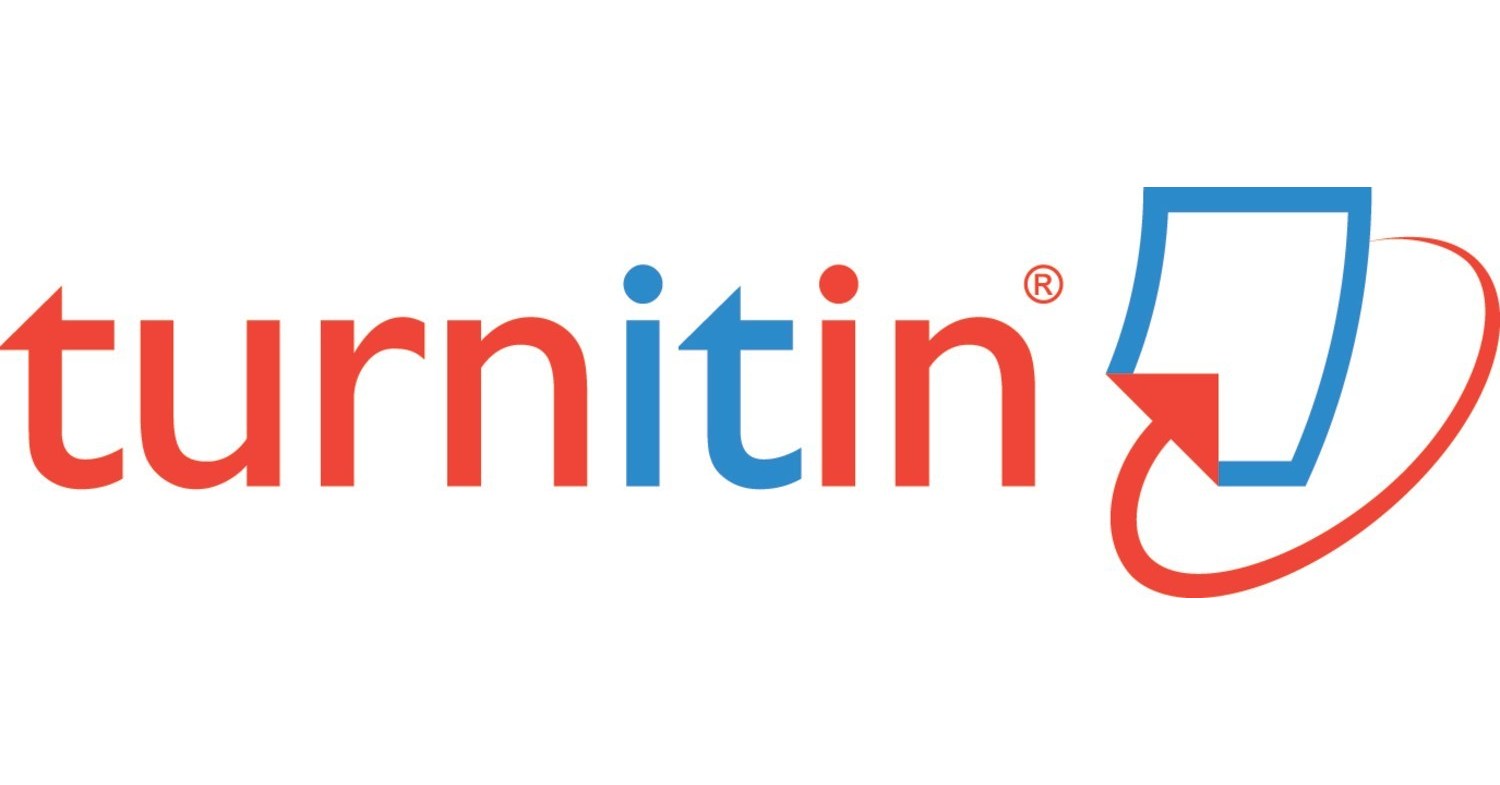DESIGN OF MODEL-BASED GEOGRAPHY LEARNING ENVIRONMENT TO CREATE SCHOOL FUN
Abstract
The research was distributed by the demands of professional teachers in carrying out the mandate to develop and implement creative and productive learning involving learners as well as their role actively. The learning process that facilitates the needs of learners and of innovative designed will be able to create an atmosphere of learning fun and meaningful for learners. Especially for geography teachers who want to create a geography learning with fun and meaningful then must master the application of model-based learning environment. This initial research is the study of the introduction in the form of needs analysis in the development of a prototype model of learning geography-based environment for creating school fun. Needs analysis is done to strengthen basic product development model so that the expected results have great benefits for teachers. In the needs analysis will be known the level of understanding of the geography teacher in Surakarta City against the application of the model of learning geography-based environment. This learning model of product development done because of early observations of known low learning motivation of the learners follow learning geography in school.
The research method used was Research and Development version of the Borg and Gall. Phases of this research is the first step of the model of Research and Development. At this stage of the preliminary study it, researchers attempted to dig in depth about the perception, skill, and the suitability of the curriculum learning focussed experiences related to the geography-based environment for creating school fun. Engineering data collection done by interview and Focus Group Discussion (FGD) and geography teachers in the city of Surakarta.
From research conducted, produced conclusions that: 1) the perception of teachers in understanding the concept of geography-based learning model development environment is already good enough. Teachers describe teaching experience by leveraging the model-based learning environment. 2) teacher skills in teaching using model-based geography learning environment is already quite good, though there is still that have not been put into practice appropriate procedures systematically. This has an impact on the learning process becomes not interesting for learners. 3) Utilizing the geography learning resource in the form of an environment capable of answering the demands of the scientific approach to skills achievement Curriculum on 2013.
Keywords
Full Text:
PDFReferences
Beattie, A Elizabeth. 2015. Young Child’s Perspectives on Outdoor Play: A Case Study from Vancouver, British Columbia. International Journal of Early Childhood Environmental Education, North American Association for Environmental Education ISSN: 2331-0464 Volume 3.
Borg, Walter R, Gall, Meredith Damien. 1983. Educational Research : An Introduction. New York & London : Longman
Crawford, Elizabeth, et.al. 2015. Children as “Solutionaries”: Environmental Education as an Opportunity to Take Action. International Journal of Early Childhood Environmental Education, North American Association for Environmental Education ISSN: 2331-0464 Volume 3
Dick W., & Cary. 2005. The systematic Design of Introduction. Glenview Illionois. Scott Forestman and Company.
Dow Su, King. 2011. An intensive ICT-integrated environmental learning strategy for enhancing student performance. International Journal of Environmental & Science Education ISSN 1306-3065 Volume 6.
Harvey, J. 1998. Evaluation Cookbook. Edinburgh : Heriout – Watt University.
Kruger, Marlena and Riana Bester. 2014. Mobile Learning : A Kaleidoscope.
The Electronic Journal of e-Learning Volume 12 Issue 1 2014, (pp52-76), available online at www.ejel.org
Phillips, Rob. 1997. The Developer’s Handbook to In teractive Multimedia (A Practical Guide foe Educational Application). London : Kogan Page
Schrand, Tom. 2008. Tapping Into Active Learning and Multiple Intellegences with Interactive Multimedia : A Low Threshold Classroom Approach. Electronical Journal. Vol. 56, Iss. 2; pg. 78, 7 pgs. www.proquest.uni.com/pqdweb : 20 April 2009
Refbacks
- There are currently no refbacks.












.png)

